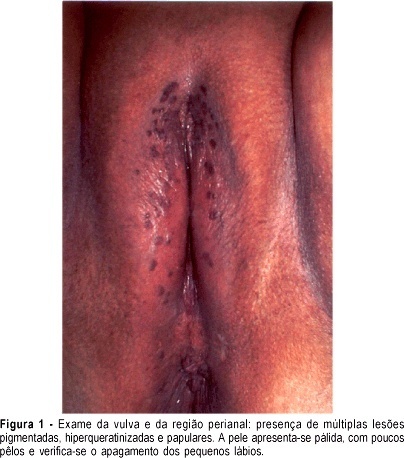Summary
. ;:283-288
DOI 10.1590/S0100-72032003000400010
High-grade vulvar intraepithelial neoplasia (VIN III) is a visible lesion; therefore, it is accessible to biopsy and thus, to a histological diagnosis. There are two forms of vulvar cancer precursors: VIN caused by human papillomavirus (HPV) and VIN associated with untreated lichen simplex chronicus, squamous cell hyperplasia, and lichen sclerosus. There may be overlap of the two forms. The term bowenoid papulosis, although discouraged, identifics a clinical form of VIN III. Such lesion appears as pigmented, wart-like growths or papules. VIN III is associated with HPV in more than 80% of the cases, and there is perianal involvement in 40% of the times. Vulvar intraepithelial neoplasia is difficult to cure and relapses can occur at any time for many years. Although there is no defined standard treatment, studies point to surgery, respecting a free margin, as the most adequate one.
